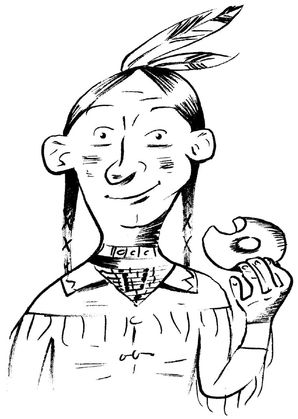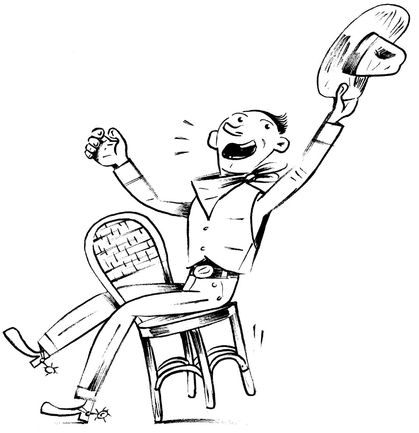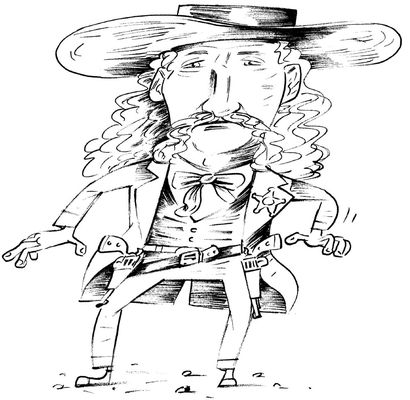Which Way to the Wild West? (16 page)
Read Which Way to the Wild West? Online
Authors: Steve Sheinkin

B
efore farmers could plant crops, they had to rip up the sodâthick grass with tangled roots reaching deep into the ground. It was backbreaking work, as Percy Ebbutt discovered. “The land that has been growing grass for centuries is one mass of roots,” he said, “and the plough goes pop! pop! pop! cutting through them.” The good news was the sod came up in heavy, foot-thick slabs of grass, roots, and dirt. Pioneers realized they
could cut the sod into squares and use them like bricks to build new houses.
efore farmers could plant crops, they had to rip up the sodâthick grass with tangled roots reaching deep into the ground. It was backbreaking work, as Percy Ebbutt discovered. “The land that has been growing grass for centuries is one mass of roots,” he said, “and the plough goes pop! pop! pop! cutting through them.” The good news was the sod came up in heavy, foot-thick slabs of grass, roots, and dirt. Pioneers realized they
could cut the sod into squares and use them like bricks to build new houses.
Sure, sod houses were full of bugs and snakes. Sure, they were dark, smoky, and always dusty. But they were cool in summer, warm in winter, and fireproof, and they lasted about ten years. Besides, families didn't come out here because they thought it was going to be easy. “There was running water in our sod house,” joked a Nebraska homesteader. “It ran through the roof.” When the roof of her sod house leaked (and they all did), one woman simply had her daughter hold an umbrella over the stove while she cooked. Another put her children to sleep under the table, where it was drier.
After getting the seeds into the ground, farmers faced the challenge of finding water. That usually meant digging a well. But how did you know where to dig? You didn'tâunless you believed in “water witches,” who claimed they could use a special stick to find underground water.
Howard Ruede had no cash to spend on magic sticks. He and his brother “Bub” got out picks and shovels, picked a spot, and started swinging. “But I had hardly made a dozen strokes before I struck myself on the head with the pick,” Ruede said.
“It's bleeding, how!” Bub yelled.
“And sure enough it was!” remembered Ruede. “I bled like a stuck pig for a few minutes.”
Howard and Bub chopped several twenty-five-foot holes in the earth, always striking dry stone at the bottom. “We'll have to go to another place to dig now,” Ruede told his brother after each failure. Finally, after many exhausting weeks, they hit water.
Women pioneers, meanwhile, were working at least as hardâcleaning, cooking, making and mending clothes, planting gardens, watching young children, and taking care of farm animals. And
everything was tougher out here on the open plains. “What could we burn for fuel?” wondered one newcomer. “There was not a tree, not even a bush, in sight.”
everything was tougher out here on the open plains. “What could we burn for fuel?” wondered one newcomer. “There was not a tree, not even a bush, in sight.”
She soon learned that dried buffalo and cow chips burned well enough for cooking. A Nebraska newspaper reported that women who were new to the plains would lift the brown blobs between two sticks. When they got a bit more used to the task, they used a rag instead. A bit later they used their apron. Finally they just picked up the chips with their bare hands, brushing their palms quickly on their skirt before turning to the next job.
I
n their letters and journals, women often wrote that the greatest hardship of pioneer life was loneliness. They had left behind parents and friends and hometowns (probably forever, they knew) and found themselves living in dirt houses in the middle of nowhere. Men at least got to travel to nearby towns for supplies once in a while. But women were always stuck at home. Looking out at the endless world of grass, listening to the whistling wind that reminded them of the emptiness all around ⦠many women honestly feared they would lose their minds.
n their letters and journals, women often wrote that the greatest hardship of pioneer life was loneliness. They had left behind parents and friends and hometowns (probably forever, they knew) and found themselves living in dirt houses in the middle of nowhere. Men at least got to travel to nearby towns for supplies once in a while. But women were always stuck at home. Looking out at the endless world of grass, listening to the whistling wind that reminded them of the emptiness all around ⦠many women honestly feared they would lose their minds.
These were the times that the fear of Indians was greatest. A young pioneer named Grace Hays grew up hearing terrifying stories about Indian wars in the West. Her mother was always afraid of an Indian attack. And sometimes a few Native Americans really would suddenly show up at their door. “Of course, these Indians were friendly,” she remembered, “almost too much so.”
By 1870 the government had pushed most of the Indians of the
eastern Great Plains onto reservations. The main danger between settlers and Indians was of cultural misunderstanding, not violence. Plains Indians simply had a different idea of privacyâthey considered it perfectly normal to walk into a stranger's home and start looking around at the clothes and pots and food.
eastern Great Plains onto reservations. The main danger between settlers and Indians was of cultural misunderstanding, not violence. Plains Indians simply had a different idea of privacyâthey considered it perfectly normal to walk into a stranger's home and start looking around at the clothes and pots and food.
Mathilda Peterson was home alone one day, frying donuts in her Nebraska cabin, when a small group of Indians strolled in and sat down on the floor. They sat there quietly, watching her work, sniffing the sweet air. Feeling a bit nervous, Peterson dropped a donut and it rolled, still-sizzling, toward one of the guests. He picked it up and popped it his mouth. Judging by the expression on his face, he had never tasted anything so delicious. Peterson spent the next hour cooking donuts, serving batch after batch to her unexpected guests.
At her homestead in Kansas, a teenage pioneer named Jennie Marcy got a very different sort of surprise visit. She and her mother were working inside one day when the usual quiet was interrupted by a distant rumbling. The sound was getting louder and louder. She ran outside.

“I saw with my own two eyes that something was about to happen,” Jennie said. “For down the road not far from the little prairie home were a thousand cattle.”
J
ennie looked around for Pete, the family's watchdog. She found him snoring in the shade. She woke him up and pointed toward the herd of cattle coming toward their farm.
ennie looked around for Pete, the family's watchdog. She found him snoring in the shade. She woke him up and pointed toward the herd of cattle coming toward their farm.
“Then,” she said, “as I clapped my hands sharply and yelled, âSic 'em! Sic 'em!' he bounded off immediately.”
Pete got a closer look at the coming herdâand decided to get out of the way. The cattle charged through the fence surrounding the Marcys' farm, snapping the wooden rails into small splinters. Jennie's mother rushed into the yard, saw a cow charging toward her, and fainted. Jennie helped her mom into the house, then ran back outside.
“I quickly mounted my pony,” she said. But there was nothing she could do. A thousand huge animals were now spread out all over the farm, calmly chomping the grass and chewing the crops.
This kind of thing was happening a lot in the 1870s. As one cowboy said: “There was scarcely a day when we didn't have a row with some settler.” The problem was that cowboys and pioneers were both trying to use the same land. On one Kansas farm in 1874, a herd of cattle actually stampeded right over a dugout house, and a cow fell through roof and landed on the bed of the sleeping settler. (Amazingly, neither was hurt.)
Cowboys were used to letting their herds graze on the wide-open plains. Now they saw more and more farmers claiming parts of this land, plowing right across the cattle trails. “And then,” complained the cowboy Teddy Abbott, “when the cattle got into their wheat or their garden patch, they would come out cussing and waving a shotgun and yelling for damages.”
Settlers saw things differently, of course. They had claimed this
land legally. So why should they stand by and watch cattle eat their grass, trample their crops, and bring diseases to their farm animals? There were plenty of angry arguments between farmers and cowboysâand occasional gunfights.
land legally. So why should they stand by and watch cattle eat their grass, trample their crops, and bring diseases to their farm animals? There were plenty of angry arguments between farmers and cowboysâand occasional gunfights.
On one cattle drive Teddy Abbott and another cowboy rode right past a settler's cabin. “We looked in the window of a little house,” Abbott remembered, “and inside the open window we saw two big, white pillows on a bed ⦠. I leaned down from my horse and grabbed one of the pillows and he took the other, and we throwed them in the wagon. I still had mine when I was married.” (Which, by the way, was twenty years later.)
“It was a dirty trick as I look at it now,” Abbott confessed, “but there was no love lost between settlers and cowboys on the trail.”
A
nd speaking of tension between settlers and cowboys ⦠The long cattle drives ended at towns along the railroadâplaces that became known as “cow towns.” When cowboys reached these towns after months of hard living on the trail, they felt they deserved a little fun. “We all headed for Dodge City to have a good time,” Nat Love said after one long drive. “And I assure you we had it.”
nd speaking of tension between settlers and cowboys ⦠The long cattle drives ended at towns along the railroadâplaces that became known as “cow towns.” When cowboys reached these towns after months of hard living on the trail, they felt they deserved a little fun. “We all headed for Dodge City to have a good time,” Nat Love said after one long drive. “And I assure you we had it.”
First the cowboys collected their pay. Then they usually stopped off at the barber for a shave and haircut, then on to a store for new clothes. Then, as Love fondly recalled, the fun began: “While our money lasted we would certainly enjoy ourselves, in dancing, drinking, and shooting up the town.”
One settler saw a strange sight while doing a bit of shopping. “A
cowboy named âBum' rode his pony âBabe' into the store,” she said, “and with his revolver drawn, ordered the clerk to give âBabe' all the candy she wanted. Needless to say, the clerk obeyed.”
cowboy named âBum' rode his pony âBabe' into the store,” she said, “and with his revolver drawn, ordered the clerk to give âBabe' all the candy she wanted. Needless to say, the clerk obeyed.”
In another cow town, Teddy Abbott earned himself a new nickname. After having a few too many drinks in a theater one night, he tried to walk behind the stage. But his spur caught on the carpet, sending him tripping into the middle of an ongoing show. He froze. Everyone was staring at him.
“Well, I thought, if you're before an audience you've got to do something, so I grabbed a chair from one of the musicians and straddled it and bucked it all around the stage, yelling, âWhoa, Blue! Whoa, Blue!'”
Teddy “Blue” Abbott

The audience was dying with laughter (“Whoa, Blue!” was a cowboy expression at the time). “And when I went out of the theater that night I was âBlue,'” Abbott said, “and Teddy Blue I have been for forty-five years.”
To cowboys, this kind of stuff was all in good fun. “We're not near so bad as we're painted,” one cowboy said. “We like to get up a little racket now and then, but it's all in play.”
S
ettlers disagreed. They preferred nice, peaceful, quiet towns. The citizens of many cow towns decided it was time to bring in lawmen tough enough to tame the streets.
ettlers disagreed. They preferred nice, peaceful, quiet towns. The citizens of many cow towns decided it was time to bring in lawmen tough enough to tame the streets.
This wasn't so easy. In Abilene, Kansas, the mayor couldn't find anyone to take the job of police chief. Experienced lawmen kept arriving from the East, taking one look at the wild saloons and gambling halls, and then hopping right back on the train. Finally a former police officer and boxer from New York City named Tom Smith agreed to give it a try.
When Smith announced that no one would be allowed to carry guns in town anymore, a couple of cowboys named Big Hank and Wyoming Frank immediately challenged him. They strolled toward Smith with pistols in their holsters. Everyone in the street dove for cover, expecting a gunfight. But Smith didn't reach for his weapon. Instead, he stepped up to the bigger men and punched them both really hard, knocking them to the dirt. That gave Smith the most valuable tool a western lawman could have: the reputation of a man not to be messed with.
Tom Smith kept the peace in Abilene for six months. Then he was shot and killed while trying to make an arrest. Desperate for a
new police chief, city leaders turned to James “Wild Bill” Hickok. When he took the job in 1871, Hickok was already famous as a ruthless gunfighterâand a creative storyteller, as this exchange with a reporter shows:
new police chief, city leaders turned to James “Wild Bill” Hickok. When he took the job in 1871, Hickok was already famous as a ruthless gunfighterâand a creative storyteller, as this exchange with a reporter shows:
Reporter:
I say, Bill, or Mr. Hickok, how many men have you killed to your certain knowledge?
I say, Bill, or Mr. Hickok, how many men have you killed to your certain knowledge?
Hickok:
I would be willing to take my oath on the Bible tomorrow that I have killed over a hundred.
I would be willing to take my oath on the Bible tomorrow that I have killed over a hundred.
Reporter:
What made you kill all those men? Did you kill them without cause?
What made you kill all those men? Did you kill them without cause?
Hickok:
No, by heaven! I never killed one man without good cause.
No, by heaven! I never killed one man without good cause.
This was a wild exaggeration, not to mention an odd thing to brag about. But Hickok knew that magazines and novels were making gunfighters like him famous. He was just doing a bit of selfpromotion.
The everyday life of a gunfighter was usually less exciting. As police chief in Abilene, Hickok spent most of this time playing cards in the Long Branch Saloon. Then one day he heard gunshots outside. He ran out and saw cowboys celebrating the end of a cattle drive by firing into the air. One of them pointed a gun at Hickok. Hickok fired, and the man fell. Hickok then saw someone else running toward him. He turned and fired and didn't seeâuntil it was too lateâthat it was his deputy, Michael Williams.
James “Wild Bill” Hickok

This is not at all what the city council of Abilene had in mind. They fired Hickok (who, friends said, never forgave himself for killing Williams).
Other books
Star Cruise: Marooned by Veronica Scott
Highlights to Heaven by Nancy J. Cohen
Take No Prisoners by John Grant
Lady Moonlight by Rita Rainville
Sorrow's Crown by Tom Piccirilli
the Romanov Prophecy (2004) by Berry, Steve
Paradox by Alex Archer
Bittersweet Fate by S.J.Dalton
BEFORE by Dawn Rae Miller
On Duty With the Queen: My Time as a Buckingham Palace Press Secretary by Dickie Arbiter
